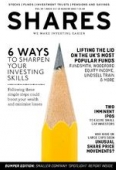Archived article
Please note that tax, investment, pension and ISA rules can change and the information and any views contained in this article may now be inaccurate.
Lifting the lid on the UK’s most popular funds

Unless you are an expert, it can be very hard to know which actively-managed funds from a group of 1,000+ are best suited to your needs. Inevitably many investors will simply pick the ones other people are buying, assuming these are popular for good reason.
As such, a good chunk of investors across the UK are likely to own one or more of the same funds such as Woodford’s equity income product or Fundsmith’s flagship fund. But do they really know what makes each of these popular funds different from the rest and how their investment process works?
To answer this question, we’ve taken a sample of the best-selling funds from various investment platforms in order to clarify their strategy, reason for being popular and suggest to whom they might be best suited.
Run by industry veteran Terry Smith, Fundsmith Equity invests in companies across the globe with an aim to achieve long term growth in value. It has a concentrated portfolio of between 20 and 30 companies which are large liquid stocks.
Research group Square Mile says one of the draws of this fund is that ‘the types of companies held are those that many investors can relate to, for most will be household brands providing every day goods and services’.
For example, Fundsmith has stakes in KitKat-to-Nescafe manufacturer Nestle and baby powder-to-skincare products giant Johnson & Johnson.
This fund chooses stocks for the long haul and doesn’t use short term trading strategies. This also helps to keep costs down as transaction fees, i.e. when a manager re-jigs their portfolio, ultimately costs the investor money.
The fund manager’s ‘buy and hold’ policy means the fund’s turnover rate, or the percentage of portfolio adjustments, is very low. Smith uses filters to bring his investment universe of 60,000 down to under 100, seeking out companies with enduring profitability, attractive free cash yields and low levels of debt.
The fund shies away from companies in cyclically sensitive parts of the market such as banks, airlines and commodity-related stocks. It doesn’t like companies that rely on debt to generate returns, preferring instead companies which are likely to grow from reinvestment of their cash flows at a high rate of return.
There is a bias towards healthcare and consumer goods companies as well as those with a loyal fan base. It also favours those whose market advantages are difficult for other companies to copy.
It has delivered 22.3% annualised return over the past five years. That’s essentially an average return each year over the five year period – although ‘annualised’ is a calculation to show what an investor would return over a period of time if the annual return was compounded.
While that’s very impressive, you do have to consider that the past five years have been a bumper time for quality-style companies. At some point value-style investing will come back into fashion and Fundsmith may not produce such good returns. However, on a long term basis we still believe the fund has the right credentials to richly reward investors.
Financial data expert Morningstar says Fundsmith Equity ‘is one of the strongest options for investors seeking exposure to high quality global equities’.
We consider the fund to be an ideal holding for someone with at least 10 years to go until retirement who wants to increase the value of capital in their portfolio.
Run by one of the UK’s most famous fund managers, Neil Woodford, this fund aims for capital growth and the added incentive of some decent income as well.
Woodford made a lot of money for investors over the years when he worked for asset manager Invesco Perpetual. Therefore it seemed inevitable he would get a favourable response when setting up his own fund management business three years ago. Woodford Equity Income was his first fund launch (2 June 2014) and it has now grown to nearly £10bn in size.
Woodford Equity Income’s focus is primarily on UK listed stocks, although the fund can also invest in unlisted companies as well as overseas stocks. An unlisted company is one that doesn’t trade on a stock exchange and thus it is privately owned.
Square Mile describes Neil Woodford as a ‘contrarian and long term investor by nature, believing that the market is inherently inefficient’. That is to say share prices are often not a true indication of a company’s value.
Woodford Equity Income is ‘benchmark agnostic’ or in other words doesn’t have any regard to an underlying index such as the FTSE 100.
It typically has around 100 holdings, although assets tend to be concentrated in the top 10, which can account for up to 60% of the portfolio. This high conviction style of investing can pay off but due to fame of the manager, if one of his picks goes wrong it can be headline news.
Remember, Woodford is in it for the long term and has recently shrugged off huge hits to his portfolio including doorstep lender Provident Financial’s (PFG) cataclysmic problems.
Another dividend-paying fund was launched in April this year called Woodford Income Focus (GB00BD9X6V34). Its aim is to deliver a higher level of regular and sustainable income than Equity Income.
Woodford Income Focus differs from Woodford Equity Income in that it only invests in listed companies and has more capacity to invest overseas. The fund has so far grown to £712m in size and the fact that it has only been around for four months means there is no long term performance data to analyse.
The target is 5% annual yield which makes it attractive to anyone looking to use investments to pay household bills, such as someone in retirement.
Alternative income funds to consider, according to AJ Bell Youinvest’s favourite funds list, include Evenlode Income (GB00B40Y5R17) which has a 3.3% yield; Fidelity Enhanced Income (GB00B7FB6W02) with 6.8% yield; and River & Mercantile UK Equity Income (GB00B3KQG447) which yields 3.9%.
Managed by Avinash Vazirani, who has over 20 years’ experience investing in Indian equities, this fund has proved popular for investors since launching in 2008.
From a macro level it’s easy to see why investors want to own it. India is growing fast; last year its GDP grew by 7.1%. To put that into context, the US only grew by 1.6%. Accessing this growth market is difficult hence the use of funds to gain exposure to a thriving economy.
The fund’s aim is to deliver long term capital growth by investing in companies which operate in India. It can also invest in stocks based in Pakistan, Sri Lanka and Bangladesh or companies that derive a large part of their business from India.
Vazirani has a preference for small and mid-cap firms that have the potential for value growth and have been overlooked by the market (hence cheaper).
Being a single country focused fund, it is susceptible to volatility, especially as India is an emerging market. But India’s prime minister Narendra Modi has brought through many reforms which have helped the country be more stable, including a dramatic reform of the banking system. Corporate governance, one of India’s main weaknesses from an investment viewpoint, is also said to have improved greatly.
‘We continue to have a high opinion of the investment manager and approach used on this fund,’ says Morningstar.
Like Fundsmith Equity, we believe the Jupiter India fund would sit nicely in a diversified investment portfolio for someone still in the wealth accumulation phase.
Managed by the firm’s founders Michael Lindsell and Nick Train, this fund is made up of a concentrated portfolio of high quality companies.
It only has between 20 and 35 holdings although these are predominately well-known names including Disney and Pepsico.
The performance has been really good with 21.1% annualised returns over the past five years, according to Morningstar.
Similarly to Smith and Woodford, the Lindsell Train fund managers do not change the portfolio often, even if companies seem to be falling out of favour. They look for companies that can have sustainable cash and profit generation from a global pool of large, highly liquid stocks.
As is becoming more common, both managers have ‘skin in the game’ which is to say they have their own money invested in the funds. That should reassure investors that the managers are keen to look after their own interests and their paying clients.
According to Square Mile the investment philosophy of Lindsell Train is that ‘truly exceptional businesses are undervalued by the market’.
These businesses tend to enjoy return on capital and reinvesting profits back into the businesses may lead to impressive returns over the long term.
The managers also run a UK version of the fund called CF Lindsell Train UK Equity Fund (GB00B18B9X76) which is larger in size at over £4bn and has higher yield at 1.9%, yet has an identical investment philosophy.
Square Mile says: ‘This fund may best suit investors who have little interest in the month-to-month and year-to-year performance of their investments but seek attractive returns over very long time periods.’
Given the similarities in investment process, we’d say that comment also applies to the Global Equity fund as well.
Nearly £1bn in size, this fund is made up of around 100 holdings so it has a degree of diversification. The fund managers Charles Plowden, Malcolm MacColl and Spencer Adair like cyclical stocks as they can present good growth opportunities.
The fund isn’t restricted to just cyclical stocks. It also invests in established firms with durable growth and younger, more rapidly growing businesses.
Square Mile remarks: ‘Baillie Gifford believe that share prices follow earnings and that attractive opportunities can be found in companies that offer above average sustainable growth in earnings and cash flow’.
The managers look for established, growing companies with businesses models that deter new competitors. This has led to having stakes in retailer Amazon and Google’s parent company Alphabet.
Morningstar says the fund is a ‘worthy option’ for investors seeking global equity exposure. We also like the fund and believe it would particularly suit someone in their thirties or forties who has plenty of appetite for risk and is happy to lock away their investment for at least 10 years.
‘A fund such as this should do best at times when the market steadily advances and it is likely to lag when the market gets ahead of the fundamentals or if the market sells off heavily,’ says Square Mile.
‘This is a long term strategy and holders should bear in mind that often the most attractive opportunities present themselves during periods of market distress. This could exacerbate short term losses and holders should not expect smooth quarter on quarter returns,’ it warns.
Important information:
These articles are provided by Shares magazine which is published by AJ Bell Media, a part of AJ Bell. Shares is not written by AJ Bell.
Shares is provided for your general information and use and is not a personal recommendation to invest. It is not intended to be relied upon by you in making or not making any investment decisions. The investments referred to in these articles will not be suitable for all investors. If in doubt please seek appropriate independent financial advice.
Investors acting on the information in these articles do so at their own risk and AJ Bell Media and its staff do not accept liability for losses suffered by investors as a result of their investment decisions.

 magazine
magazine





















